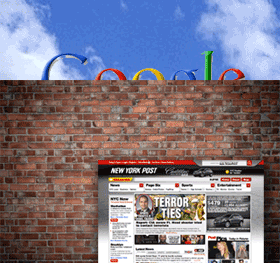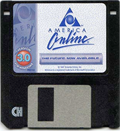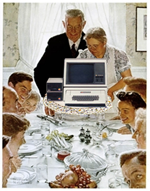Apple has the opportunity to fast track submissions from its iPhone App store development partners. Partners that follow best practices should be given the benefit of the doubt to accelerate the screening process.
Earlier today, my colleague Harry McCracken wrote about a BusinessWeek interview with Phil Schiller, Apple’s senior vice-president for worldwide product marketing concerning its App Store vetting process.
The gist of it is that Apple views itself as a retailer stocking its shelves with quality goods. It still needs to work on its vendor relations.
Schiller said that there are now over 100,000 applications in the App Store, and Apple is receiving over 10,000 submissions a week. Roughly 90% of the submissions that it rejects are simply buggy; the remaining 10% are “inappropriate” — containing malware, objectionable content, or are intended to help users break the law.
Apple believes that developers are happy about its “safety net,” and that may be true, but there have been very vocal exceptions. Facebook developer Joe Hewitt famously protested against the control Apple is exerting over its hardware, and argued that Apple is setting a “horrible precedent.”
However, the end result is that people trust the applications that they purchase in the App Store. That is an important part of the iPhone user experience. But Apple should give trusted developers more leeway — they make the App Store what it is. Apple needs their products.
I am reminded of the old Saturday Night Live sketch with Dan Aykroyd touting dangerous children’s toys such as “Johnny Switchblade,” “Bag O’ Glass,” and the “Chainsaw Bear.” It was hyperbole to the max. By Apple’s own omission, the vast majority (>90%) of developers are good partners that wouldn’t make disreputable apps, and they shouldn’t be treated as such.
My family owns a manufacturing business, and sells products that have International Organization for Standardization (ISO) approvals. ISO sets manufacturing standards, and audits the plants to guarantee that those standards are being met. Apple could do the same by outlining the best practices and tests that its developers should follow when they make software.
More transparency and partnership would go a long way. It is a huge disincentive to invest in the development of an app only to see it be rejected. Apple can be a better partner, and still protect the sanctity of its “shelves.”



 It’s just a rumor, but a fascinating one: Rupert Murdoch’s News Corp. is supposedly talking to Microsoft about
It’s just a rumor, but a fascinating one: Rupert Murdoch’s News Corp. is supposedly talking to Microsoft about  As part of its retooling as it becomes an independent company (again!),
As part of its retooling as it becomes an independent company (again!),  Back in the early 1980s, it wasn’t a given that a family needed a home computer–or even that they knew exactly what a home computer was. So ads for PCs and related products made sure to show happy families–sometimes eerily happy families–crowded around the computer, enjoying the heck out of their purchase.
Back in the early 1980s, it wasn’t a given that a family needed a home computer–or even that they knew exactly what a home computer was. So ads for PCs and related products made sure to show happy families–sometimes eerily happy families–crowded around the computer, enjoying the heck out of their purchase.